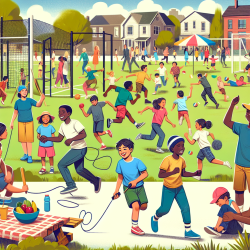Providing effective bereavement care is a critical aspect of a general practitioner's (GP's) role, yet many GPs feel unprepared for this responsibility. A recent qualitative study titled "General Practitioners’ experiences of bereavement care and their educational support needs: a qualitative study" by O’Connor and Breen (2014) sheds light on the current state of bereavement care among GPs and highlights areas for improvement.
The study revealed several key tensions in how GPs approach bereavement care:
- Grief as a standardised versus an individualised process
- Intervening versus promoting resilience
- The GP as a broker of services versus a service provider
- Formal education and professional development versus 'on-the-job' experiential learning
These tensions illustrate the need for updated education and professional development to ensure GPs can provide the best possible care to bereaved patients.
Understanding Grief: Standardised vs. Individualised
Many GPs in the study viewed grief through a standardised, stage-based lens, often referencing Elisabeth Kübler-Ross's stages of grief. However, contemporary models suggest that grief is a unique and multifaceted experience. GPs should be encouraged to adopt a more flexible understanding of grief that accommodates individual variations.
Intervening vs. Promoting Resilience
The study found that some GPs felt the need to intervene directly in their patients' grief, while others believed in promoting resilience through natural support systems like family and community. A balanced approach that recognizes when professional intervention is necessary and when to encourage natural coping mechanisms can be more effective.
GPs as Brokers vs. Providers of Services
There was also a divide in whether GPs saw themselves primarily as brokers of services—referring patients to mental health professionals—or as direct providers of bereavement support. Training GPs to effectively communicate and collaborate with mental health professionals can help bridge this gap, ensuring patients receive comprehensive care.
Need for Formal Education and Professional Development
The study highlighted a significant lack of formal education on bereavement care at both undergraduate and postgraduate levels. Most GPs relied on 'on-the-job' learning, which can lead to outdated practices. Incorporating contemporary grief theories and practical training into medical education and ongoing professional development is crucial.
Implementing Research Findings
Based on the study's findings, here are some actionable steps for GPs to improve their bereavement care skills:
- Seek out continuing education opportunities that focus on contemporary grief theories and practical applications.
- Develop a network of mental health professionals for referrals and establish clear communication channels.
- Adopt a flexible approach to grief, recognizing the individual nature of each patient's experience.
- Utilize community resources and support systems to promote resilience among bereaved patients.
By embracing these strategies, GPs can enhance their ability to support bereaved patients effectively, ultimately improving patient outcomes.
To read the original research paper, please follow this link: General Practitioners’ experiences of bereavement care and their educational support needs: a qualitative study.










